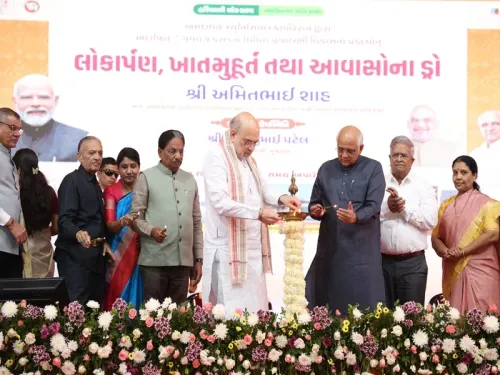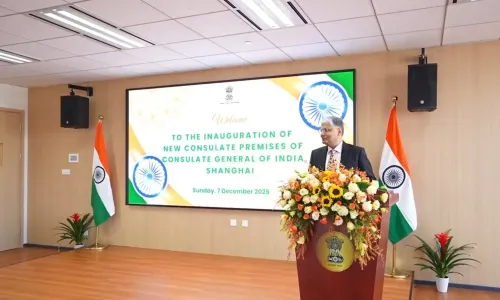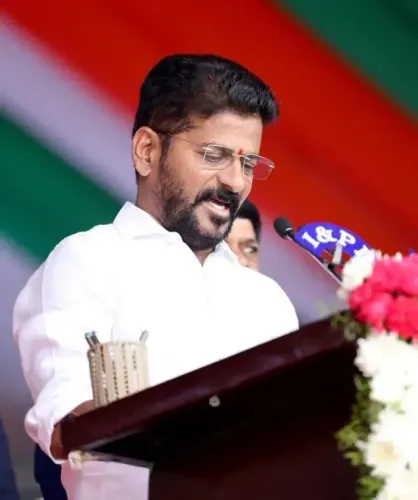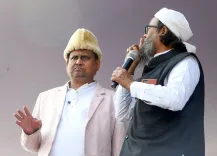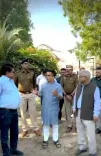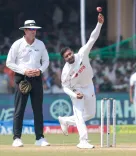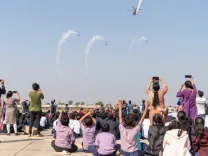Did Pakistan Plead for Peace Following India’s Operation Sindoor?
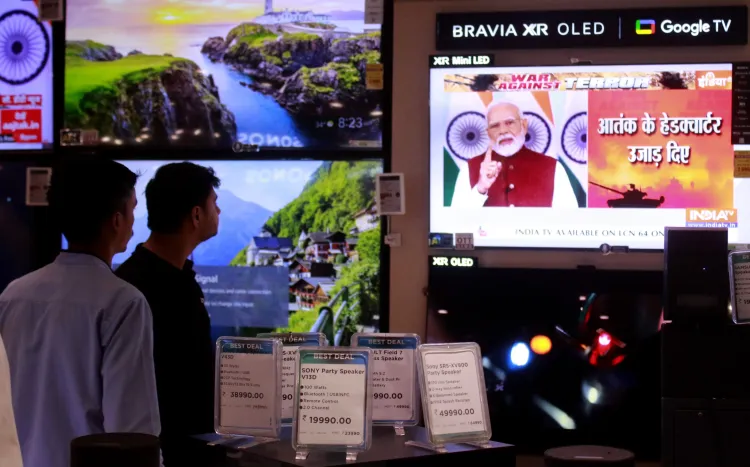
Synopsis
Key Takeaways
- India's Operation Sindoor resulted in significant military action against terror elements.
- Pakistan sought peace following heavy losses.
- PM Modi emphasized India's military superiority.
- Responses to terrorism will be uncompromising.
- Operation Sindoor is an ongoing commitment to national security.
New Delhi, May 12 (NationPress) Following the relentless Operation Sindoor, Pakistan found itself in a state of turmoil due to the impactful actions executed by the Indian Armed Forces. Left with no alternatives, Pakistan resorted to pleading for peace after incurring significant losses as a consequence of the retaliatory measures taken post the April 22 Pahalgam terror assault.
With its military taken aback by the pinpoint strikes targeting terror infrastructure within Pakistan and Pakistan-Occupied Kashmir (PoK), the neighboring nation was compelled to approach India in an attempt to reduce tensions. This revelation came from Prime Minister Narendra Modi during a compelling televised address.
He emphasized that India’s stance towards Pakistan was unequivocal—terrorism would not be tolerated, and those who support it would face repercussions.
PM Modi noted that it was indeed Pakistan that sought peace after experiencing India’s overwhelming military might. “It was Pakistan that suffered the consequences of the Indian offensive, prompting their DGMO to reach out to their Indian counterpart,” he disclosed, highlighting the fragility of Pakistan’s position and confirming that the request for de-escalation originated from them, not India.
In his televised address, PM Modi dedicated the accomplishments of Operation Sindoor to the nation’s 'Nari Shakti'. He recognized the profound suffering endured by women and children who have lost loved ones to heinous acts of terrorism.
“This triumph is for the mothers, sisters, and daughters of our country,” PM Modi proclaimed, honoring the strength of the women who have witnessed such atrocities.
He did not shy away from condemning Pakistan’s role in terrorism, directly targeting notorious terror hubs within the country, identifying Bahawalpur and Muridke as “universities of terror” responsible for orchestrating anti-India activities.
“Pakistan attempted to erase the Sindoor of our women, and we dismantled their terror universities,” he affirmed, emphasizing the magnitude of India’s response.
The Prime Minister confirmed that the Indian Armed Forces surpassed their designated targets, neutralizing over 100 terrorists. “The targets of the Indian Armed Forces have exceeded a century!” he proclaimed.
PM Modi asserted that Pakistan had been addressed in a manner it comprehends, sending a firm message that no terrorist attack would go unpunished.
In a pointed critique of Pakistan’s military, PM Modi asserted the superiority of India’s armed forces. “The Pakistani Army pales in comparison to the Indian Armed Forces,” he stated, reinforcing India’s military strength and resolve in combating cross-border terrorism.
Moreover, PM Modi unequivocally stated that terrorism sponsored by Pakistan would not be tolerated. “Even now, every inch of land in which terror is nurtured by Pakistan is within the reach of our Armed Forces,” he emphasized, reaffirming India’s dedication to addressing any threats originating from across the border.
He made it abundantly clear that Operation Sindoor is ongoing. “India will respond to terror and its sponsors in a language they understand,” he declared, asserting that “nuclear blackmail will not succeed” against India.
His concluding remarks established the framework for India’s new strategic reality: “India will retaliate, with no differentiation between terrorists and their sponsors, regardless of who they are or where they are located.”



